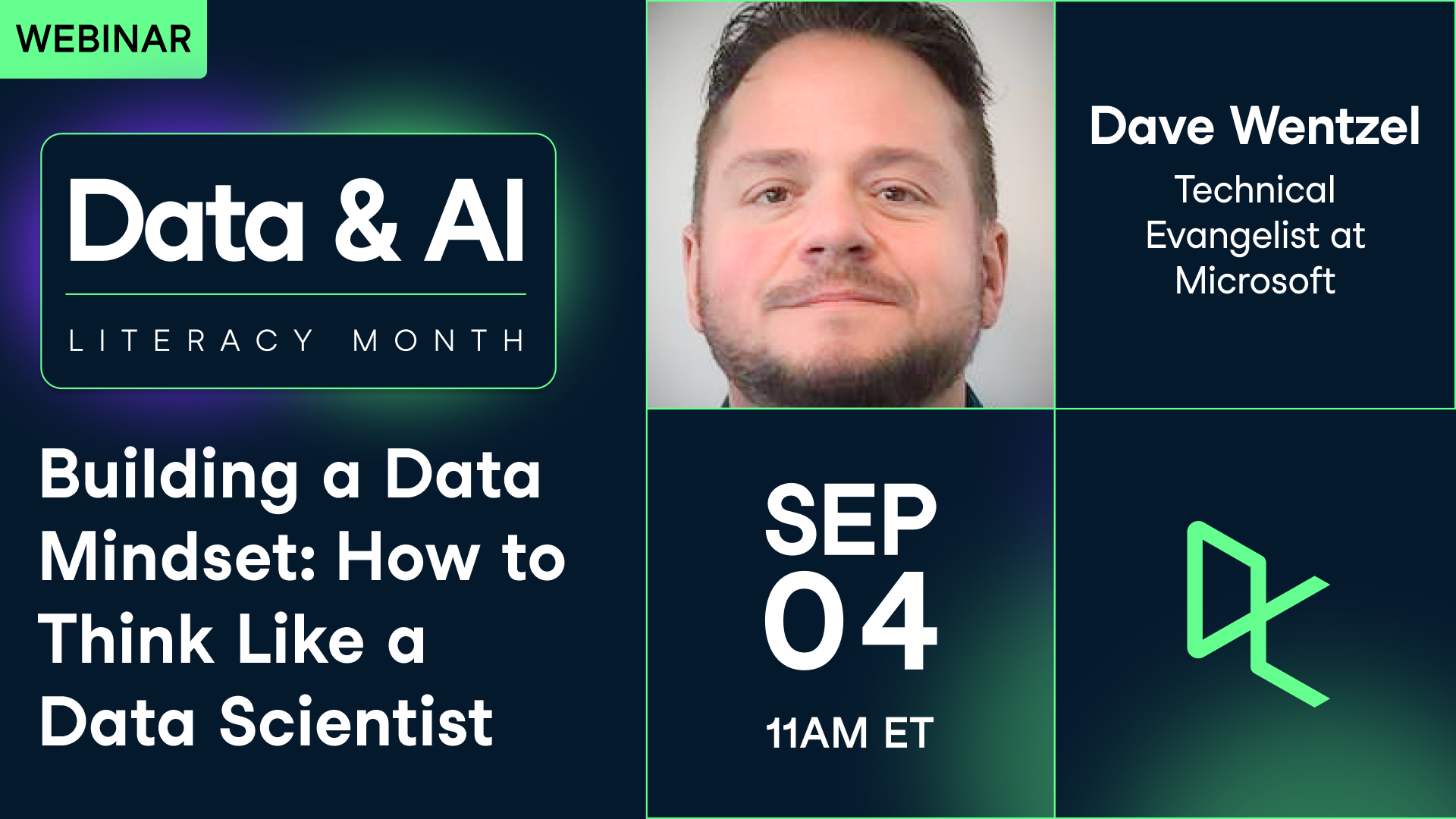Skip to main content





Related
webinar
Developing a Data Mindset: How to Think, Speak, and Understand Data
In this webinar, Jordan Goldmeier teaches you the secrets of how "data head"'s minds work.webinar
Build Your Dream Team: Hiring Data Talent Effectively
Discover DataCamp Talent, and how it can assist you to scale your data team.webinar
How to Communicate with Data Effectively
Miro Kazakoff, a Senior Lecturer at MIT Sloan and the author of Persuading with Data, and David Boyle, the Director at Audience Strategies and author of the PROMPT series of books, teach you how to communicate more effectively with data.webinar
Build Your Dream Team: Hiring Data Talent Effectively
Discover DataCamp Talent and how it can assist you to scale your data team.webinar
Effective Data Storytelling for Financial Services
Learn simple communication techniques to make your ideas understood, whether you are speaking to a technical audience or a business audience.webinar
Democratizing Data Science at Your Company
Data science isn't just for data scientists. It's for everyone at your company.Join 5000+ companies and 80% of the Fortune 1000 who use DataCamp to upskill their teams.
Loved by thousands of companies

